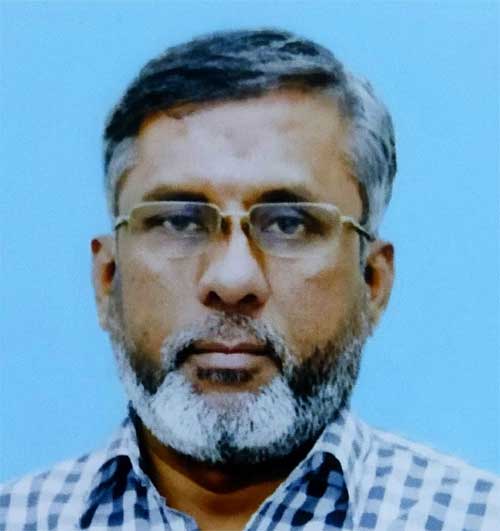Malik Zohaib Nawaz
Budget will be business-friendly. Energy cost will be controlled. Targeted subsidies will be provided. Inflation will be reduced. Circular debt will be eliminated. Taxes will be collected from rich and privileged class. Rupee will appreciate. Exports will increase and current account deficit will remain under control. Economy will grow. GDP will increase and people of Pakistan will enjoy economic prosperity. When this ‘Will’ become present?
Every government in Pakistan has been promising the people a prosperity and economic independence. In last two to three decades, no government has ever achieved highly enthusiastic targets. Except for political slogans, economic issues have never been resolved. No government has yet put the economy on track for consistent and persistent stability and growth. When the economy starts growing at better pace, other issues like high inflation and Current Account Deficit (CAD) starts rising for which Pakistan needs to approach international financial institutions for loans. If growth pace is reduced, then unemployment starts rising which is also not desirable considering the size of the population. It means that there is something wrong in the policy. Mild inflation with better GDP growth is the most desirable combination which every country targets. This is also well understood by economic manager of Pakistan but there is a hindrance for which we cannot blame the economic managers.
The basic problem is the unrealistic and fanatic approach. Countries cannot achieve economic sovereignty without first devising the realistic policy and setting measurable goals. People may like the slogans of relief and subsidies but at the end it is the public who has to pay the cost. If policy would not be realistic then no change would occur, and economy would remain in the same situation. If we realistically analyse economic situation then there is a flaw in the policy. Targets for imports, exports, inflation, unemployment rates, FDI are projected with very high enthusiasm. When after a year or so, such targets appear to be unrealistic then other problems start rising. For example, we can set the target for low imports and high exports, but would it be possible for us considering the CPEC projects? Chinese government is already concerned about slow pace of CPEC projects, and we cannot ignore their concerns. The pace of CPEC projects would surely be increased as a result of which our CAD would again increase in coming years. Global commodity prices are not in our control which would further add burden on CAD. If we use the policy rate as a tool to control inflation, unemployment rate starts rising. Government then tries to provide relief through subsidies which also disturb budgetary targets and ultimately development budget is curtailed.
Due to above factors and unrealistic and delayed decisions, investors and businessmen also cannot take their decisions. If we ignore the political point scoring only then a realistic policy can be devised. Still, it is not so late, and government should take the decisions at the earliest because each day of delay causing more stress on weak economy. Government should have increased the energy prices earlier as it is not a prudent way to provide relief. People should be conveyed a clear message that subsidies (especially in energy sector) cannot sustain for longer period. Once government would decide to speak the realities of economy only then it can take good decisions. Delay in taking the decisions make it more troublesome for public who expect the subsidies to continue and when the same is withdrawn, reaction is natural. Had the new government taken the decision of increase in energy prices earlier, they could have good tools to negotiate with IMF. Delay has caused the confusion and IMF demanded more strict actions.
In order to convert ambitions into reality, the actions are required on two fronts. On internal front, tax collection targets should be realistic. Most of the taxes are still being collected through withholding regimes which approach should be discarded gradually. The focus should be on broadening the tax base not burdening the existing taxpayers. Salary class and corporate entities are mostly compliant taxpayers. The focus should now be on undocumented sectors and tax evaders. The increase in tax targets is treated as fetching more taxes from existing compliant taxpayers which is not only unfair but also not the solution.
On external front, embargo should be imposed on maximum possible goods. Such embargo should have been imposed on goods which have even inferior quality local substitutes. We cannot afford enjoying high quality imported luxuries at the cost of high debt servicing which is now eroding most of country’s revenue. We cannot afford GDP growth based on the imported goods. Only such impots should be allowed which are used in high value addition locally. Without enhancing the capabilities to produce basic raw material locally, we cannot come out of this vicious circle of debt and CAD. On the other hand, exporters should be provided maximum possible relief. Income tax which is currently 1% of export proceeds should be exempted for exporters who are exploring new markets internationally or making substantial value additions. Providing relief in taxes to exporters would not cost much as compared to the forex they would bring in the country.
Country cannot rely upon ‘will’ and it is the time for real action. The plans should be brought to present instead of future because future is always ‘indefinite’. Future will bring the results, but actions are required in present. Country has used to hear the slogans of prosperity in future, but present is more important. If economy will survive in present only then future goals can be achieved. Nothing is stronger than accepting the reality no matter even if it is so harsh. If we want to make our economic future ‘definite’ then we should avoid ‘indefinite’economic policies.





